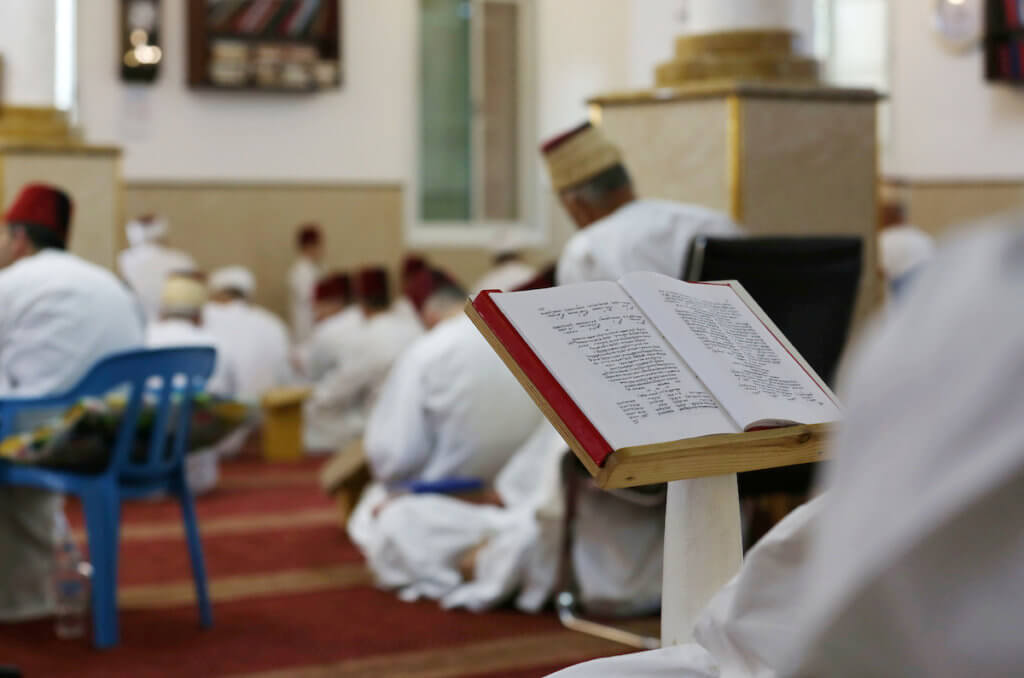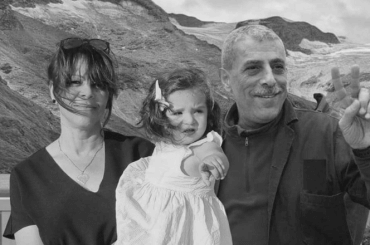For the first time in a quarter of a century, I will not be officiating at High Holy Days services. While my colleagues will be conducting socially-distanced Zoom services from their synagogue sanctuaries, I will be home with my family. This is the first High Holy Days sabbatical I have taken in my career as rabbi and clergy. I do not yet know whether I will come back to officiate in shul in the future.
Looking back, I cherish sweet memories of community and spiritual highs. I was fortunate to have highly skilled and supportive colleagues throughout my career. And I continue to be grateful for the skills I acquired doing this work. If I am able today to move people through song or inspire them with my words, that is thanks, in no small part, to all those special moments combined.
Previously, the weeks leading up to the Jewish High Holy Days were a period of intense preparation. Whether as a rabbi or a cantor, High Holy Days prep dominated my work schedule. I still have more to say and heart to sing but this year, I am grateful for this break from officiating at the High Holy Days.
Frankly, in this pandemic, it’s a relief to be home. I am fortunate in my suburban life that even with a full house and daily remote learning, life is quieter and slower than it was pre-pandemic. No carpooling to choir and then to dance studio after school while preparing dinner or ferrying kids between soccer games and practices on the weekend. As in a spiritual retreat, during this period flashes of insight have appeared as if from nowhere. One day this summer – between the backyard theater camp, managing the kitchen, and muddling through social isolation – it occurred to me that the humming bird feeder on the front porch – rarely frequented by birds or insects – was meant to be taken apart. Throw the pieces in a basin of warm water, add soap and apply elbow grease, and years of accumulated gunk wash away down the drain, leaving behind a sparkling, clean feeder. And so this year, for the first time in a while, the humming birds came back. They fed not just from the long necked red flowers but stopped by the feeder too, guzzling on clear, sugar water. These magical birds telegraphed their arrival with a dull, whirring throb, pinpointing their positions positioning between two grey blurs of helicopter wings. They then stop on the perch, long bills bobbing into the feeder. When their wings fall silent I know they feel safe.
I am happy to fill up the feeder up regularly. The brightly colored, long tubed flowers in the planter and the feeders’ sugar water encased in red plastic are like big neon signs signalling both to birds and bees that they are welcome. All these visitors are welcome to my home.
Driving around town, you can immediately locate a house of worship by the oversize parking lot signs: “All Are Welcome!” Every house of worship prides itself on policies and attitudes designed to attract the widest possible membership. Synagogues compete with each other on who can be the more welcoming. As one of my rabbinic teachers liked to quip, no synagogue says to visitors: “if you are looking for a welcoming community that’s not us. If I were you, I’d check out the other synagogue down the road.”
Indeed, there is no principle more highly valued in organized Judaism than community. The local rabbinic association I belong to demands a single commitment from its members. No doctrine of faith – after all, we include proudly atheist rabbis. No commitments of religious practice – members run the gamut from strict Orthodox observance to no observance at all of Jewish ritual laws. No social justice or political doctrines – there are progressive Democrats and right wing Republicans and everything in between. No, the sole commitment all rabbis must uphold is synagogues. Judaism is about Jewish community, first, foremost and to the exclusion of all else.
For the last ten years or so of my synagogue career, I have invested much thought and effort in fulfilling the promise of the “All Are Welcome” signs.
What is needed to make all feel welcome and to make synagogues the Jewish home for all Jews? What makes a person feel welcome? It’s quite simple: knowing that they can be fully themselves and feel right at home.
So I promoted that principle: everyone is welcome to speak their truth. Concomitantly, all are expected to afford the same respect to others.
I got to work. I gave sermons and held events. I conducted workshops for rabbis and for congregants. I established a national organization of rabbis dedicated to upholding free speech in the Jewish community. I spoke in public venues across the country.
“All are welcome” and free speech sound simple enough, even self-evident. But, after years of doing this work I have unfortunately come to the conclusion that these values are beyond the reach of the Jewish community.
One example. If you support the call for equality under the law in Israel-Palestine granting equal rights to Jews and Palestinians, as I do, there is no place for you in the rabbinic community. You will be called “a traitor to the Jewish people” to your face; rabbis will go out of their way to shun you. No matter how clearly a synagogue professes its commitment to free speech and inclusivity and no matter what mutual agreements and contracts you carefully craft and sign, no matter how clear you are and how you nurture relationships and invest in community, in other words, no matter how well you do your job – all these efforts at inclusivity will crash against the harsh reality of Jewish unwelcome.
Perhaps this is one of the reasons why the vast majority – and growing number – of Jews do not attend synagogue. They see the same “All Are Welcome” signs that I see – yet most of them choose to stay away. I meet these Jews regularly when I tend to the pastoral needs as a rabbi. We rarely talk about why they left their synagogue – or never joined one – so I don’t know their reasons but they clearly have made their choice. Otherwise, we – an unaffiliated rabbi and unaffiliated Jews – would not have met.
It’s not just millenials or younger. I am a Gen Xer. And I know many Jews my age and older, who were previously stalwarts of the Jewish community and are now disenchanted from organized Judaism. Like me, they have yet to find that other synagogue down the road where they might feel welcome.
The path back to community starts with the individual. This Rosh Hashanah and Yom Kippur I will be with my family and away from the pulpit.
As Jews gather with family or to watch services from home on Zoom this is the opportunity to reflect: what does an inclusive Jewish community look like? When the pandemic is over, who will be welcome back in our synagogues?
Shana Tova!



I visited the new rabbi at the local reform synagogue with a Christian friend. We went to talk about her (the rabbi’s) thoughts on Palestine, etc. I expressed how I felt a real lack of Jewish community, and the painful absence of community for my family, because of my commitment to Palestine. My Christian friend was SHOCKED by how little she cared, how little concern she felt about the needs of a Jewish family in her community. I was surprised by the strength of my friend’s reaction. I guess I had never thought about the fact that clergy should feel a sense of responsibility for the spiritual needs of families in their community. It is so normal for me for rabbis to see me as the enemy.
Thank you Rabbi Davis. i found this article to be very sad, a sad state indeed. but i learned some things from your article i had no idea. that there were atheist rabbis, i had no idea. and this: “Judaism is about Jewish community, first, foremost and to the exclusion of all else”, however. it would seem Israel is so controversial that it threatens that community. so apparently not “to the exclusion of all else” if it embraces the very thing dividing the community. like a catch 22.
“If you support the call for equality under the law in Israel-Palestine granting equal rights to Jews and Palestinians, as I do, there is no place for you in the rabbinic community.”
Or Israel, we might add: https://www.middleeastmonitor.com/20200918-knesset-rejects-bill-to-ensure-full-equality-between-all-israeli-citizens/
Knesset rejects bill to ensure full equality between all Israeli citizens…The Israeli parliament, the Knesset, has rejected a bill presented by Yousef Jabareen on behalf of the Arab Joint List intended to ensure full equality for all of Israel’s citizens, regardless of their ethnicity or religious affiliation….Despite the bill highlighting the need for human rights and democracy to be available to all in the Zionist state, it was rejected by a majority of the ruling coalition and opposition parties.
“we include proudly atheist rabbis.”
Then why bother being Jewish at all? Join the Church of England. Those rabbis would fit right in.